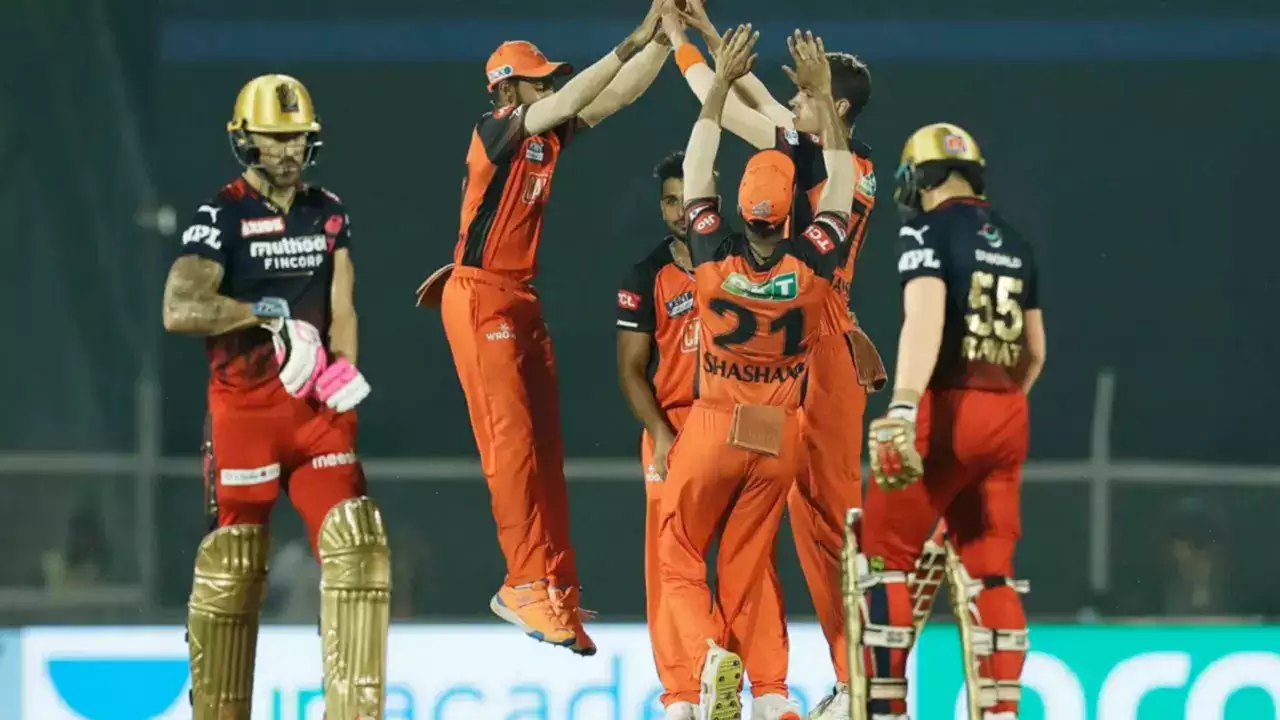On Saturday, Iran President Hassan Rouhani asked why India with a population of 1.3 billion didn’t enjoy veto rights on the UNSC which lies with permanent members of the UNSC, namely China, France, Russia, UK and US.
On Saturday, Iran President Hassan Rouhani asked why India with a population of 1.3 billion didn’t enjoy veto rights on the UNSC which lies with permanent members of the UNSC, namely China, France, Russia, UK and US.
Rouhani said at an event in New Delhi: “Why India with a population of 1 billion & 300 million doesn't enjoy veto rights & why does the US have veto rights? Five countries who had atomic bombs were given the right of veto.” Critics have long argued against the veto power of the five permanent members with demands being made for permanent seats for Brazil, Germany, India and Japan.
In recent times, China has been using its veto power to block UN's move to designate JeM chief Masood Azhar as a 'global terrorist'.
He was also critical of the US, saying they had made ‘strategic miscalculations from the beginning against Iran’. He also hit out at the Trump administration over the nuclear deal, calling the haggling ridiculous, saying that Trump was a ‘businessman who had haggled all his life and doesn’t know that haggling can’t be done all the time’.
Iran's President Hassan Rouhani said on Saturday it would adhere to commitments under its 2015 international nuclear agreement, signed with six world powers to limit its disputed nuclear programme.
Rouhani went on to say that Washington would regret withdrawing from the deal, and called the ISIS was a ‘great instrument’ for the US to ‘play with’.
"We will adhere to our commitments made," Rouhani said at an event in New Delhi. "After signing a contract, haggling with it is ridiculous."
U.S. President Donald Trump has been pushing for changes to the agreement, which cleared the way for sanctions against the Islamic Republic to be lifted.
Iranian President Hassan Rouhani also said India and Iran have a "common stance" in effectively dealing with terrorism and extremism, and called for concerted regional efforts to deal with the challenge.
After holding wide-ranging talks with Prime Minister Narendra Modi, Rouhani, trying to reflect on growing congruence in bilateral ties, said the two sides deliberated on a range of pressing bilateral, regional and international issues but did not disagree on even a "single topic".
"Iran and India have a common stance on confronting terrorism and extremism, and we are determined to confront terrorism and extremism through culture and the exchange of information and experience," he said in a statement to the media.
Asked whether India raised the issue of Pakistan-sponsored terrorism in Jammu and Kashmir during today's talks, officials in the Ministry of External Affairs (MEA) said that there was an understanding on how India was a victim of terrorism, indicating that it figured in the deliberations.
Rouhani said he and Modi had very good discussions on stepping up cooperation in a number of key areas including oil and gas as well as on crucial connectivity projects like development of the Chabahar port.
"Today, we are witnessing the development of Chabahar Port and a momentum in the construction of Chabahar railway to Zahedan with India's investment," Rouhani said, asserting that ties between the two countries are going to intensify further.
The Iranian President said Modi's visit to Tehran in 2016 paved the way for bringing new momentum in ties and its fruits are being seeing today.
"Relations between Iran and India are beyond political and diplomatic. It is a historical relationship, it is a relationship based on civilisational heritage," he said.
Rouhani said Iran was "fully ready" to intensify cooperation in the areas of energy, particularly oil, gas and petrochemicals.
"We also had a great deal of discussion today on facilitating economic relations, preferential trade tariffs, better banking relations, visa relations and facilitating travel between the two countries for business purposes," he said.
On convergence of views between the two sides on key issues, Rouhani said, "On all major bilateral, regional and international issues, we did not disagree on even a single topic".
Referring to the situation in Afghanistan, he said both countries were of the opinion that all stakeholders should work for peace and stability of the country.
"We believe that the various issues of the region, especially in Syria, Iraq and Yemen, should be resolved through political initiatives," he said.
On Iran's nuclear issue, he said both the countries have a common viewpoint that the commitment to the international agreement must be honoured.
With inputs from PTI
![submenu-img]() US imposes sanctions on Chinese, Belarus firms for providing ballistic missile tech to Pakistan
US imposes sanctions on Chinese, Belarus firms for providing ballistic missile tech to Pakistan![submenu-img]() 'Don't have any comment': White House mum on reports of Israeli strikes in Iran
'Don't have any comment': White House mum on reports of Israeli strikes in Iran![submenu-img]() Yes Bank co-founder Rana Kapoor gets bail after four years in bank fraud case
Yes Bank co-founder Rana Kapoor gets bail after four years in bank fraud case![submenu-img]() Barmer Lok Sabha Polls 2024: Check key candidates, date of voting and other important details
Barmer Lok Sabha Polls 2024: Check key candidates, date of voting and other important details![submenu-img]() This star once lived in garage, earned Rs 51 as first salary; now charges Rs 5 crore per film, is worth Rs 335 crore
This star once lived in garage, earned Rs 51 as first salary; now charges Rs 5 crore per film, is worth Rs 335 crore![submenu-img]() DNA Verified: Is CAA an anti-Muslim law? Centre terms news report as 'misleading'
DNA Verified: Is CAA an anti-Muslim law? Centre terms news report as 'misleading'![submenu-img]() DNA Verified: Lok Sabha Elections 2024 to be held on April 19? Know truth behind viral message
DNA Verified: Lok Sabha Elections 2024 to be held on April 19? Know truth behind viral message![submenu-img]() DNA Verified: Modi govt giving students free laptops under 'One Student One Laptop' scheme? Know truth here
DNA Verified: Modi govt giving students free laptops under 'One Student One Laptop' scheme? Know truth here![submenu-img]() DNA Verified: Shah Rukh Khan denies reports of his role in release of India's naval officers from Qatar
DNA Verified: Shah Rukh Khan denies reports of his role in release of India's naval officers from Qatar![submenu-img]() DNA Verified: Is govt providing Rs 1.6 lakh benefit to girls under PM Ladli Laxmi Yojana? Know truth
DNA Verified: Is govt providing Rs 1.6 lakh benefit to girls under PM Ladli Laxmi Yojana? Know truth![submenu-img]() Remember Ali Haji? Aamir Khan, Kajol's son in Fanaa, who is now director, writer; here's how charming he looks now
Remember Ali Haji? Aamir Khan, Kajol's son in Fanaa, who is now director, writer; here's how charming he looks now![submenu-img]() Remember Sana Saeed? SRK's daughter in Kuch Kuch Hota Hai, here's how she looks after 26 years, she's dating..
Remember Sana Saeed? SRK's daughter in Kuch Kuch Hota Hai, here's how she looks after 26 years, she's dating..![submenu-img]() In pics: Rajinikanth, Kamal Haasan, Mani Ratnam, Suriya attend S Shankar's daughter Aishwarya's star-studded wedding
In pics: Rajinikanth, Kamal Haasan, Mani Ratnam, Suriya attend S Shankar's daughter Aishwarya's star-studded wedding![submenu-img]() In pics: Sanya Malhotra attends opening of school for neurodivergent individuals to mark World Autism Month
In pics: Sanya Malhotra attends opening of school for neurodivergent individuals to mark World Autism Month![submenu-img]() Remember Jibraan Khan? Shah Rukh's son in Kabhi Khushi Kabhie Gham, who worked in Brahmastra; here’s how he looks now
Remember Jibraan Khan? Shah Rukh's son in Kabhi Khushi Kabhie Gham, who worked in Brahmastra; here’s how he looks now![submenu-img]() DNA Explainer: What is cloud seeding which is blamed for wreaking havoc in Dubai?
DNA Explainer: What is cloud seeding which is blamed for wreaking havoc in Dubai?![submenu-img]() DNA Explainer: What is Israel's Arrow-3 defence system used to intercept Iran's missile attack?
DNA Explainer: What is Israel's Arrow-3 defence system used to intercept Iran's missile attack?![submenu-img]() DNA Explainer: How Iranian projectiles failed to breach iron-clad Israeli air defence
DNA Explainer: How Iranian projectiles failed to breach iron-clad Israeli air defence![submenu-img]() DNA Explainer: What is India's stand amid Iran-Israel conflict?
DNA Explainer: What is India's stand amid Iran-Israel conflict?![submenu-img]() DNA Explainer: Why Iran attacked Israel with hundreds of drones, missiles
DNA Explainer: Why Iran attacked Israel with hundreds of drones, missiles![submenu-img]() This star once lived in garage, earned Rs 51 as first salary; now charges Rs 5 crore per film, is worth Rs 335 crore
This star once lived in garage, earned Rs 51 as first salary; now charges Rs 5 crore per film, is worth Rs 335 crore![submenu-img]() Meet actress, who worked as cook for free food, mopped floors, one Instagram post changed her life, is now worth…
Meet actress, who worked as cook for free food, mopped floors, one Instagram post changed her life, is now worth… ![submenu-img]() UP man arrested for booking cab from Salman Khan's house under Lawrence Bishnoi's name
UP man arrested for booking cab from Salman Khan's house under Lawrence Bishnoi's name ![submenu-img]() 'Justice milega': Ankita Lokhande talks about Sushant Singh Rajput, reveals she's still connected with his family
'Justice milega': Ankita Lokhande talks about Sushant Singh Rajput, reveals she's still connected with his family![submenu-img]() Rajkummar Rao reacts to plastic surgery rumours, admits he got fillers: 'If something gives me confidence...'
Rajkummar Rao reacts to plastic surgery rumours, admits he got fillers: 'If something gives me confidence...'![submenu-img]() IPL 2024: KL Rahul, Quinton de Kock star in Lucknow Super Giants' dominating 8-wicket win over Chennai Super Kings
IPL 2024: KL Rahul, Quinton de Kock star in Lucknow Super Giants' dominating 8-wicket win over Chennai Super Kings![submenu-img]() DC vs SRH, IPL 2024: Predicted playing XI, live streaming details, weather and pitch report
DC vs SRH, IPL 2024: Predicted playing XI, live streaming details, weather and pitch report![submenu-img]() Watch: Virat Kohli's cheeky 'your wife' remark to Dinesh Karthik leaves RCB teammates in splits
Watch: Virat Kohli's cheeky 'your wife' remark to Dinesh Karthik leaves RCB teammates in splits ![submenu-img]() DC vs SRH IPL 2024 Dream11 prediction: Fantasy cricket tips for Delhi Capitals vs Sunrisers Hyderabad
DC vs SRH IPL 2024 Dream11 prediction: Fantasy cricket tips for Delhi Capitals vs Sunrisers Hyderabad![submenu-img]() 'Kohli said it's not an option, just...': KL Rahul recalls his IPL debut for RCB in 2013
'Kohli said it's not an option, just...': KL Rahul recalls his IPL debut for RCB in 2013![submenu-img]() Canada's biggest heist: Two Indian-origin men among six arrested for Rs 1300 crore cash, gold theft
Canada's biggest heist: Two Indian-origin men among six arrested for Rs 1300 crore cash, gold theft![submenu-img]() Donuru Ananya Reddy, who secured AIR 3 in UPSC CSE 2023, calls Virat Kohli her inspiration, says…
Donuru Ananya Reddy, who secured AIR 3 in UPSC CSE 2023, calls Virat Kohli her inspiration, says…![submenu-img]() Nestle getting children addicted to sugar, Cerelac contains 3 grams of sugar per serving in India but not in…
Nestle getting children addicted to sugar, Cerelac contains 3 grams of sugar per serving in India but not in…![submenu-img]() Viral video: Woman enters crowded Delhi bus wearing bikini, makes obscene gesture at passenger, watch
Viral video: Woman enters crowded Delhi bus wearing bikini, makes obscene gesture at passenger, watch![submenu-img]() This Swiss Alps wedding outshine Mukesh Ambani's son Anant Ambani's Jamnagar pre-wedding gala
This Swiss Alps wedding outshine Mukesh Ambani's son Anant Ambani's Jamnagar pre-wedding gala








































)




)
)
)
)
)
)